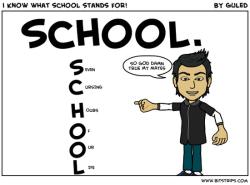How to check for liens on a property?
Checking for liens on a property is an essential step when buying or assessing real estate. Liens can affect the property's title and your ownership rights. Here are some guidelines on how to check for liens on a property:
Visit the County Clerk's Office:The county clerk's office typically maintains public records related to property ownership and liens. Visit the office in the county where the property is located.
Provide Property Information:You'll need the property's address or parcel number. If you don't have this information, you can usually obtain it from the county assessor's office.
Search Online Databases:Many county clerk's offices provide online databases that allow you to search for property records, including liens. You may be able to access these databases through the county's official website.
Title Search or Title Company:Consider hiring a title company or a title search professional. These experts can conduct a title search to determine the property's ownership history, any outstanding liens, and any encumbrances on the title.
Property Report:Request a property report from a title company or a real estate attorney. This report will typically include information on liens, mortgages, deeds, and other encumbrances related to the property.
Tax Records:Check the local tax records, as property tax liens are common. Delinquent property taxes can lead to a tax lien on the property.
Visit the Recorder's Office:In some areas, property records may be kept in the recorder's office instead of the county clerk's office. Ensure you check both offices for comprehensive information.
Ask the Seller:If you're in the process of buying the property, ask the seller to provide information about any known liens. Sellers are typically required to disclose this information during a real estate transaction.
Use a Real Estate Agent:If you're working with a real estate agent, they can often assist you in checking for liens as part of the buying process. Real estate professionals have access to various databases and resources.
Consult a Real Estate Attorney:If you're uncertain about the status of liens on the property or need legal advice, consider consulting a real estate attorney. They can help you navigate the process and provide guidance on resolving any lien-related issues.
Public Notices:Some liens, such as mechanic's liens or judgment liens, may be publicly recorded in newspapers or online publications. Checking public notices in your area can help you identify such liens.
Check the Property's Title Report:If you're already in the process of buying the property, you will receive a title report as part of the transaction. This report will provide information about any existing liens on the property.
It's essential to identify and address any liens on a property before finalizing a real estate transaction, as they can have legal and financial implications. Consulting with professionals, like title companies, real estate attorneys, or real estate agents, can be particularly valuable to ensure a comprehensive lien search and a clear understanding of the property's title status.
How to Check for Liens on a Property: Essential Steps
Here are the essential steps on how to check for liens on a property:
- Obtain a title report. A title report is a legal document that lists all claims and encumbrances on a property. You can obtain a title report from a title company or from your local county recorder's office.
- Review your credit report. Liens may also be reported on your credit report. You can obtain a free copy of your credit report from each of the three major credit bureaus once per year at annualcreditreport.com.
- Search the public records. Some liens, such as tax liens and judgment liens, may be recorded in the public records of your county recorder's office. You can search the public records online or in person.
Understanding Property Liens and Their Implications
A property lien is a legal claim against a property. Liens can be placed on property for a variety of reasons, including:
- Unpaid debts: A creditor may place a lien on your property if you owe them money and you do not repay the debt.
- Taxes: The government may place a lien on your property if you owe back taxes.
- Homeowner association dues: Your homeowner's association may place a lien on your property if you fail to pay your homeowner association dues.
- Judgments: If you lose a lawsuit, the court may award a judgment against you. The judgment creditor may then place a lien on your property to collect the debt.
Property liens can have a number of negative implications. For example, a lien can make it difficult to sell or refinance your home. A lien can also lead to foreclosure, which means that the lender can sell your home to satisfy the debt.
Researching and Identifying Liens on Real Estate
There are a number of ways to research and identify liens on real estate. Here are a few tips:
- Review the title report. The title report will list all claims and encumbrances on the property.
- Search the public records. You can search the public records online or in person at your local county recorder's office.
- Contact the lienholder. If you know the name of the lienholder, you can contact them directly to verify the presence of the lien.
Resolving Liens and Ensuring Clear Property Title
If you find that there is a lien on the property you are interested in purchasing, there are a number of ways to resolve the lien and ensure clear property title. Here are a few options:
- Pay the debt. The simplest way to resolve a lien is to pay the debt that is owed. Once you pay the debt, the lienholder will release the lien.
- Negotiate a settlement. You may be able to negotiate a settlement with the lienholder. This may involve paying a reduced amount or paying the debt over time.
- File for bankruptcy. Filing for bankruptcy may allow you to discharge some or all of your debts, including liens. However, bankruptcy is a serious step and should only be considered after careful consideration.
If you are not sure how to resolve a lien, you should consult with an attorney.
Protecting Your Interests in Property Transactions
There are a number of things you can do to protect your interests in property transactions, including:
- Purchase title insurance. Title insurance can protect you from financial losses if a lien is discovered on the property after you purchase it.
- Hire an attorney. An attorney can help you to review the title report, identify any potential liens, and negotiate with lienholders on your behalf.
By following these tips, you can help to protect your interests in property transactions and avoid the potential negative consequences of property liens.












